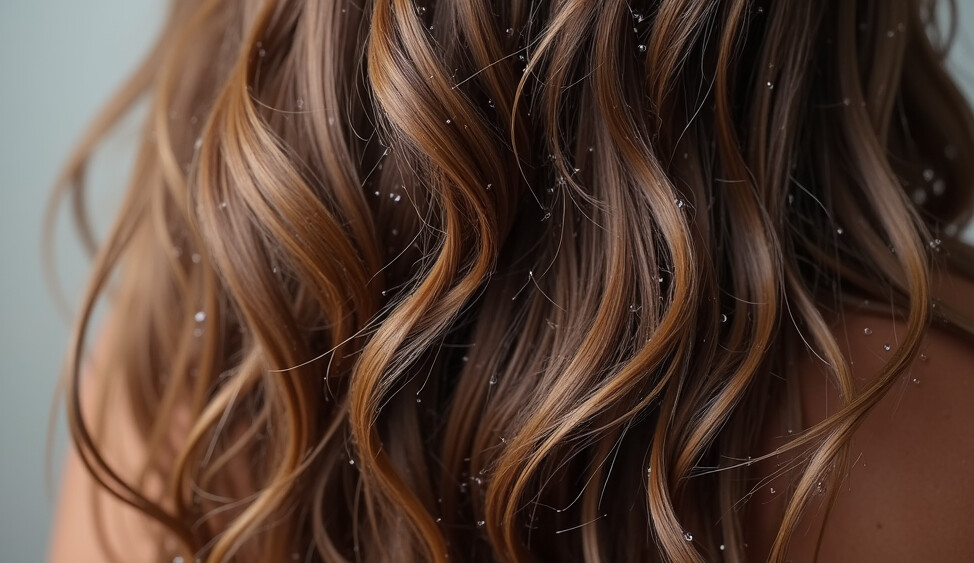Understanding how sulfate-free shampoos can affect hair loss and overall hair health is important for anyone seeking a healthier hair care routine. I have spent time researching this topic and learning how these products can create a healthier environment on the scalp, which is very important for maintaining strong hair follicles. This article covers what sulfate-free shampoos do, how they work, and answers some common questions related to hair growth and shampoo selection.

Understanding Sulfate-Free Shampoos and Their Impact on Hair Health
Sulfate-free shampoos have gained popularity for their gentler approach to hair care. Unlike traditional shampoos containing sulfates like sodium lauryl sulfate (SLS) and sodium laureth sulfate (SLES), which can strip natural oils and cause dryness, sulfate-free options aim to cleanse without compromising moisture balance.
Key Benefits:
- Reduced Scalp Irritation: Sulfate-free shampoos are less likely to cause dryness, redness, or inflammation, making them suitable for sensitive scalps.
- Moisture Retention: By preserving natural oils, these shampoos help maintain hair’s softness and shine.
- Color Protection: They are ideal for color-treated hair, as they prevent premature fading by not stripping away dye molecules.
- Enhanced Curl Definition: Curly and textured hair types benefit from the added moisture, reducing frizz and maintaining curl integrity.
Considerations:
- Cleansing Efficiency: Some sulfate-free shampoos may produce less lather and might not remove heavy product buildup as effectively.
- Cost: Sulfate-free shampoos can be more expensive; however, they offer long-term benefits for hair health.
Scientific Research

Scientific research has examined the effects of sulfate-free shampoos, particularly focusing on their gentleness and environmental impact. Study: Su et al. (2025)
Key Findings:
- Milder Formulations: Sulfate-free shampoos often use amino acid-based surfactants like glutamates and alaninates, which are biodegradable and less irritating to the skin compared to traditional sulfates like SLS and SLES.
- Environmental Considerations: These alternative surfactants are derived from renewable sources, offering lower carbon and water footprints, aligning with consumer demand for eco-friendly products .
- Performance and Safety: Studies indicate that glutamate-based surfactants outperform sulfates in safety and irritation potential, contributing to a gentler cleansing experience .
While sulfate-free shampoos may not directly stimulate hair growth, their gentler formulations can promote a healthier scalp environment, potentially reducing irritation and supporting overall hair health.
Conclusion:
Switching to a sulfate-free shampoo can be a beneficial choice for those seeking a gentler, more nourishing hair care routine. It’s particularly advantageous for individuals with sensitive scalps, color-treated, or naturally textured hair. By choosing sulfate-free options, you can promote a healthier scalp environment and maintain the natural beauty of your hair.

Frequently Asked Questions on Sulfate-Free Shampoos and Hair Growth
This section addresses some common questions that many have regarding the use of sulfate-free shampoos and their relation to preventing hair loss and promoting hair growth.
Question: Is sulphate good for hair growth?
Answer: I learned that sulfates are not particularly beneficial for hair growth. While they serve as effective cleansing agents, they can also strip away natural oils that are essential for maintaining a healthy scalp. A healthier scalp does support hair growth, but achieving that state is usually better accomplished with gentler cleansing products such as sulfate-free shampoos.
Question: What does sulfate shampoo do for your hair?
Answer: Sulfate shampoos work by creating a deep lather that can remove dirt, oil, and buildup from the hair and scalp. However, this deep cleansing can sometimes lead to dryness and irritation. The removal of natural oils is a side effect that might leave the hair feeling less moisturized, potentially making it more prone to damage over time.
Question: Does sulfate-free shampoo make hair grow faster?
Answer: The direct relationship between sulfate-free shampoo and faster hair growth is not clearly established. What I found is that sulfate-free shampoos promote a healthier scalp environment by reducing irritation and preserving moisture. This healthier baseline can support optimal hair follicle function, which may contribute to improved hair growth over time. However, many factors influence hair growth, so it is not the sole factor in achieving faster hair growth.
Question: Which shampoo is best for growth of hair?
Answer: The best shampoo for hair growth depends on individual needs. I stand behind sulfate-free shampoos because of their gentle cleansing formulation and the very important role of a healthy scalp environment. For those with sensitive scalps or color-treated hair, sulfate-free options are usually preferable. Additionally, shampoos that include nourishing ingredients like biotin, argan oil, or aloe vera can offer extra benefits, making them appealing choices for overall hair health.
All-in-One Hair Care: Streamlining for Healthier Hair
Creating an effective hair care routine doesn’t need to be complicated—it’s about combining the right habits, products, and patience. Here’s how to optimize your regimen, especially when using sulfate-free shampoos:
🔑 Core Components of a Healthy Routine
- Use Gentle, Sulfate-Free Shampoos
Protects natural oils and reduces irritation for a healthier scalp environment. - Condition Regularly
Follow up with a nourishing conditioner or mask to lock in moisture and protect strands. - Stay Consistent
Give new products time—results vary by hair type, scalp condition, and environment.
🥗 Lifestyle Habits That Support Hair Health
- Balanced Diet: Nutrients like biotin, zinc, and omega-3s support growth.
- Hydration: Water intake impacts scalp health and hair elasticity.
- Stress Management: Chronic stress disrupts the hair cycle—try walking, yoga, or meditation.
- Exercise: Boosts circulation, delivering more oxygen to follicles for stronger growth.
💡 Pro Tips & Myths Debunked
- Lather ≠ Effectiveness: Rich foam doesn’t mean a better cleanse. Sulfate-free = gentler care.
- Weekly Deep Conditioning: Strengthens and hydrates, especially after switching shampoos.
- Track Progress: Journaling texture, shedding, and scalp comfort helps tailor your routine.
Final Thoughts on Sulfate-Free Shampoos
Sulfate-free shampoos reduce irritation, retain moisture, and support a balanced scalp—creating an ideal environment for healthy hair growth. While they don’t speed growth directly, they help prevent issues that disrupt it. If you experience dryness or sensitivity, switching may improve comfort and appearance. Pairing gentle hair care with good nutrition, hydration, and stress management can enhance results. Everyone’s hair journey is unique, but consistency and informed choices can lead to stronger, more resilient hair.
References
1. Su, E.; Herman, S. (2025). Beyond Sulfate-Free Personal Cleansing Technology Cosmetics, 12, 14. Doi: 10.3390/cosmetics12010014

I really enjoyed this article! Your clear explanation of sulfate-free shampoos and their benefits for different hair types was enlightening. I found the section on how these shampoos can help maintain natural oils and reduce scalp irritation particularly helpful. I’m curious, do you have any recommendations for specific sulfate-free shampoos that work well for color-treated hair? Thanks for sharing such valuable insights!
I’m so glad you enjoyed the article and found it helpful!
For color-treated hair, sulfate-free shampoos help maintain vibrancy and prevent dryness. Top recommendations include:
Pureology Hydrate Shampoo – Sulfate-free, with UV filters and antioxidants to protect color.
Olaplex No.4 Bond Maintenance Shampoo – Strengthens and repairs damaged, color-treated hair.
L’Oréal EverPure Sulfate-Free Moisture Shampoo – Budget-friendly and gentle on color.
Moroccanoil Moisture Repair Shampoo – Enriched with keratin and argan oil for hydration and shine.
Always pair with a matching conditioner for best results and longevity of your colour!